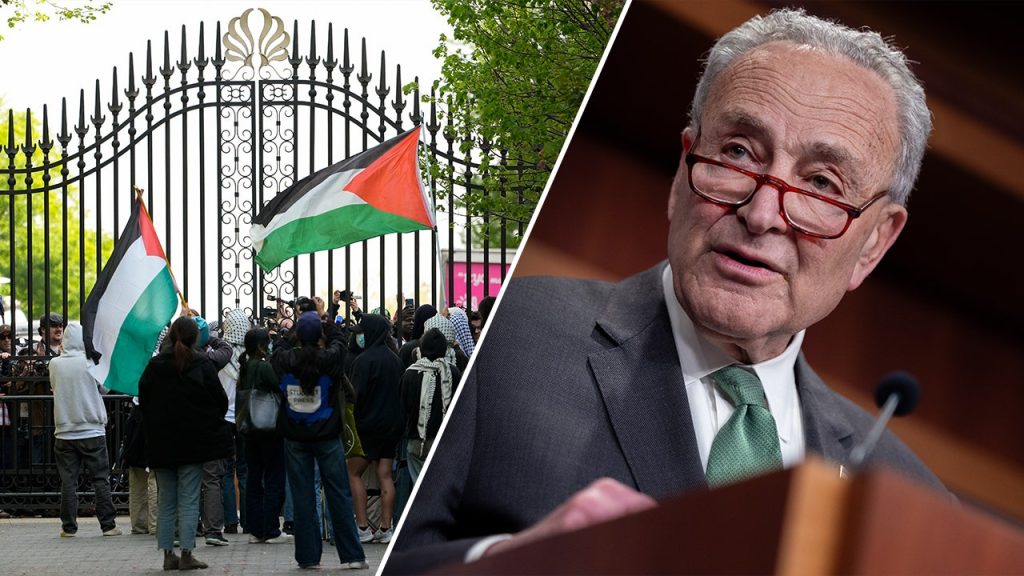Senate Majority Leader Chuck Schumer and Sen. Kirsten Gillibrand have avoided visiting Columbia University amidst anti-Israel and antisemitic demonstrations that have erupted on the campus. The demonstrations started as a pro-Palestinian occupation and evolved into an encampment, with support from high-profile Democratic legislators such as Reps. Alexandria Ocasio-Cortez and Jamaal Bowman. Schumer addressed the protests in his remarks on the Senate floor, condemning the lawlessness that resulted in the takeover of a building on campus. While House GOP leadership has visited the university, Schumer’s office did not confirm if he plans to do the same.
Gillibrand, who has been vocal in her support for Israel, expressed outrage at the antisemitism displayed on the campus and the threats of violence against Jewish students. She emphasized the importance of respecting all groups’ rights to practice their religion in peace and condemned the use of terrorist rhetoric on campus. House Democrats, including those representing New York, have also voiced their concerns about the protests, calling on the university’s Board of Trustees to dismantle the encampment of anti-Israel, anti-Jewish activists. Rep. Ritchie Torres, a signatory of the letter, expressed support for Jewish students on campus and affirmed his commitment to continue visiting Columbia University in the future.
Senate Minority Leader Mitch McConnell criticized the visit of a member of Congress to the encampment, referring to Rep. Ilhan Omar’s comments accusing some Jewish students of being “pro-genocide.” Omar’s remarks sparked backlash, with many condemning her for not prioritizing the safety of all Jewish students. The escalating tensions at Columbia University have led to calls for action from various political figures, urging President Biden and other leaders to address the situation. The demonstrations have attracted national media attention and have raised concerns about the limits of free speech and the consequences of lawlessness on college campuses.
The encampment at Columbia University has triggered a debate on campus activism and the boundaries of free speech, with some arguing that the protesters’ actions go beyond peaceful demonstration. House Democrats and Republicans have expressed support for Jewish students on campus and called for an end to the unauthorized encampment, emphasizing the importance of maintaining a safe and inclusive environment for all students. The situation at Columbia University highlights systemic issues related to antisemitism, terrorism rhetoric, and the need for universities to address campus tensions proactively. The ongoing protests have raised questions about the role of political leaders in responding to controversial events on college campuses and ensuring the protection of all students.
The involvement of high-profile Democratic legislators in supporting the encampment at Columbia University has sparked criticism from their Republican counterparts, who argue that the protests have crossed the line and infringed on the rights of other students. The demonstrations have revealed deep divisions within Congress on issues related to Israel, antisemitism, and free speech, with lawmakers from both parties expressing contrasting views on how to address the situation. The unrest at Columbia University serves as a microcosm of broader political debates surrounding Middle East conflicts, campus activism, and the responsibilities of elected officials in ensuring the safety and well-being of all students. As tensions continue to escalate, it remains to be seen how political leaders will navigate the complex dynamics at play and find a resolution that upholds principles of free speech and inclusivity while condemning acts of violence and discrimination.


